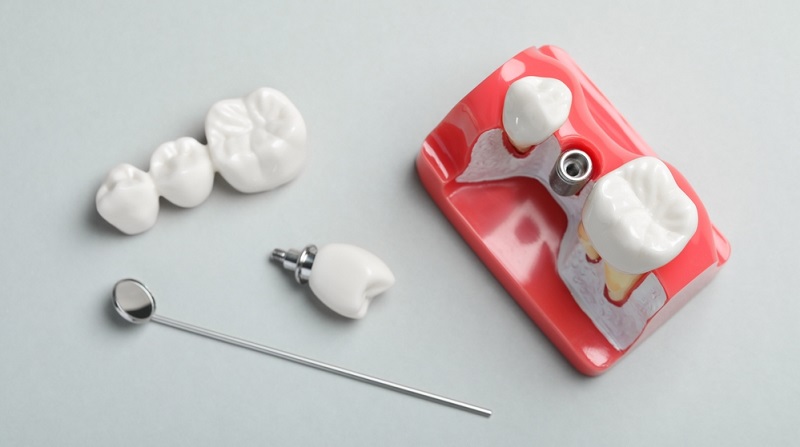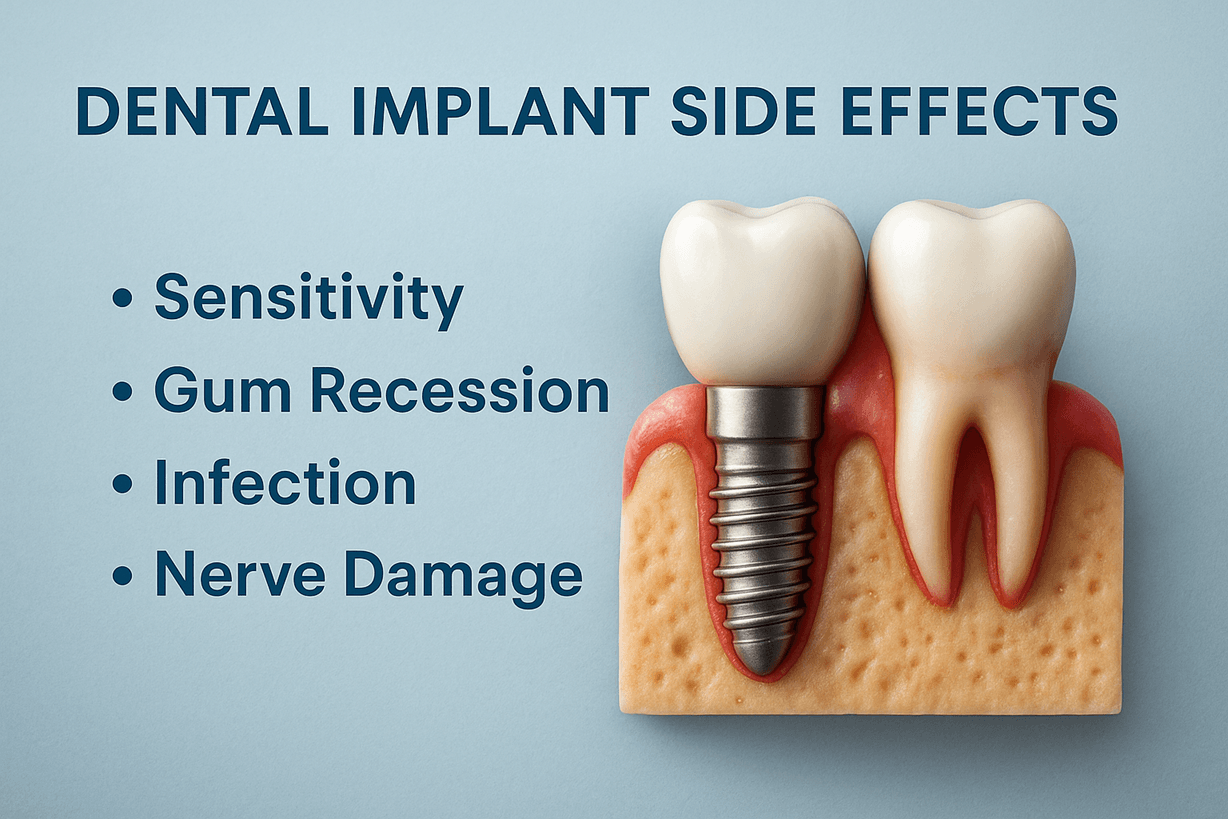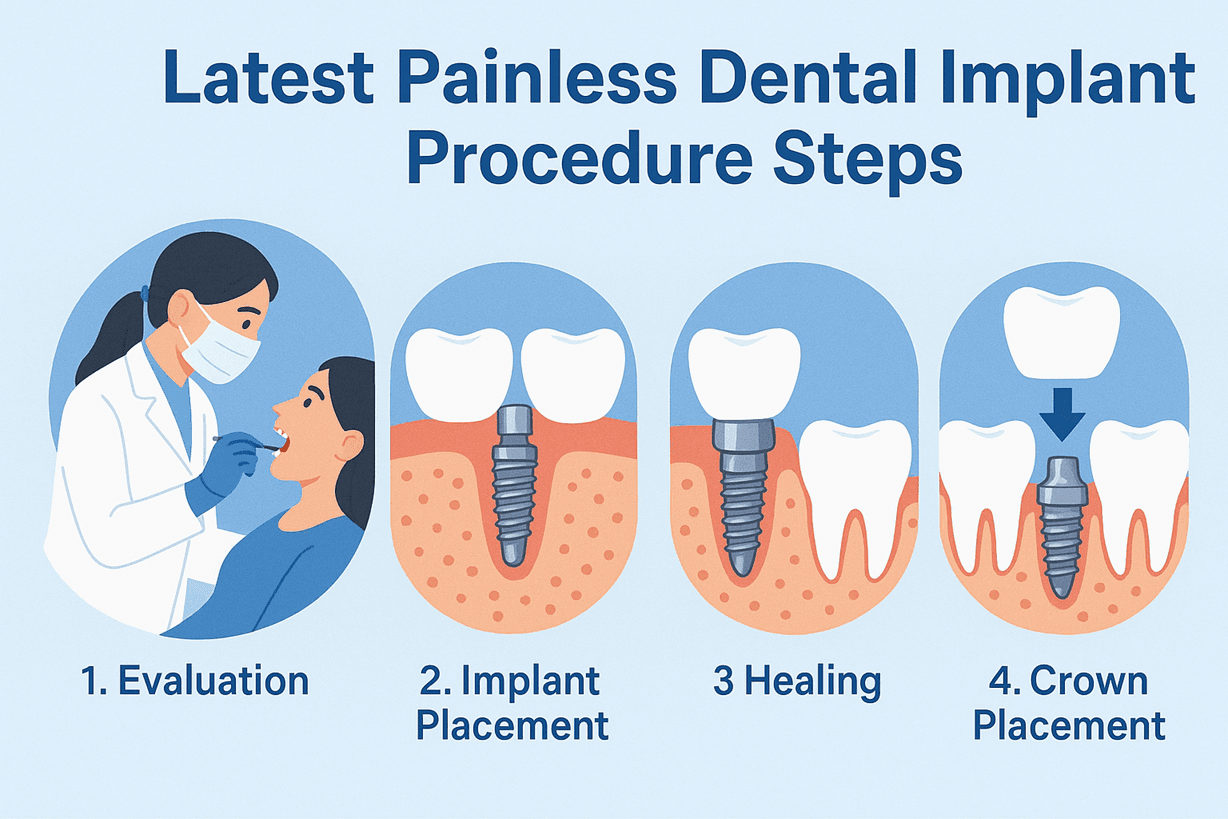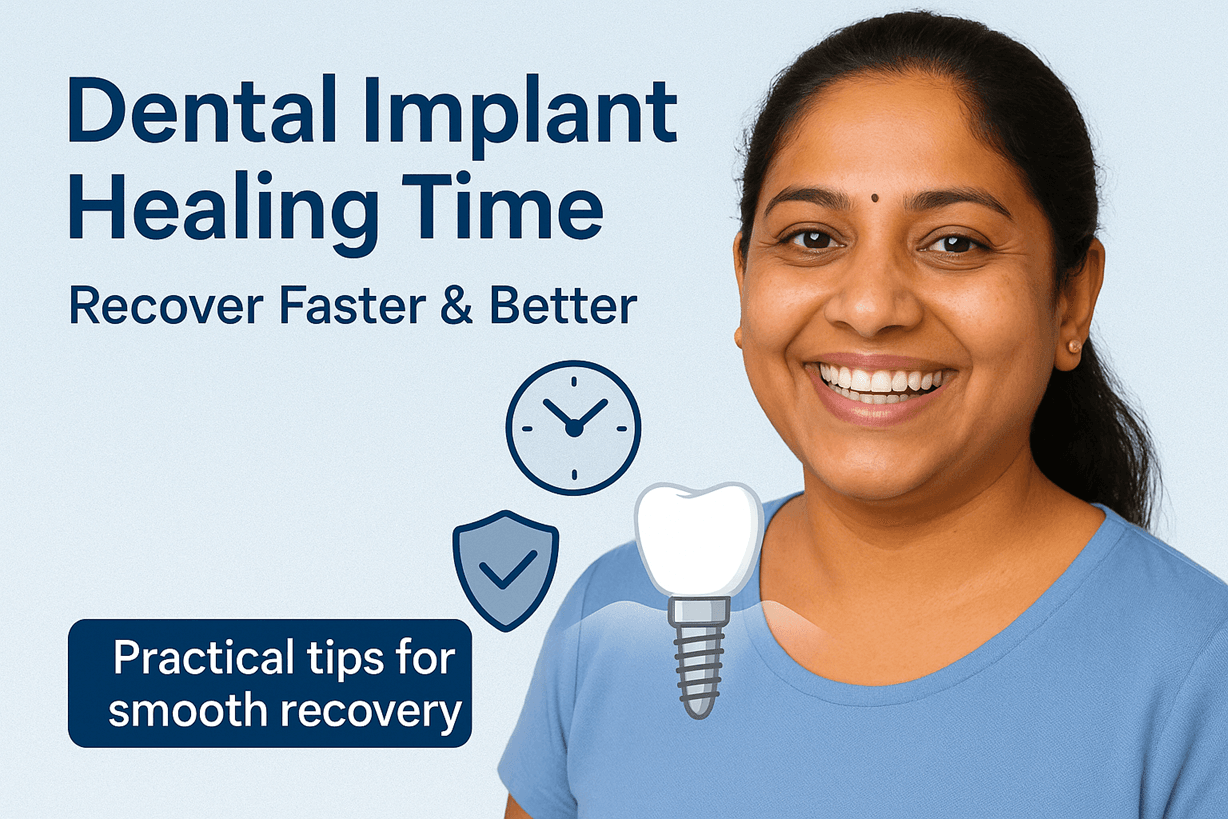Contents

Are you tired of hiding your smile because of missing teeth? Dental implants may be the solution you need!
But before jumping into the procedure, it's crucial to understand everything about dental implant abutments.
These small but mighty pieces play a vital role in ensuring your new teeth are secure and long-lasting.
In this blog post, we'll cover everything from what abutments are to the different types available in the market today. So sit back, relax, and learn all about dental implant abutments!
What is a Dental Implant Abutment?
A dental implant abutment is a small metal connector that links a dental implant to a prosthetic, such as a crown, bridge, or denture. Positioned between the implant and the prosthetic, the abutment ensures the stability and support of the artificial tooth.
- Material: Abutments are typically made of titanium, a strong and durable material that is biocompatible, meaning it won’t cause an immune reaction in the body.
- Customization: Abutments come in various sizes and shapes to meet the specific needs of each patient.
- Placement: The abutment is placed after the implant has fully healed and fused with the bone. Once in place, the dentist can create a custom prosthetic that fits over the abutment.
- Key Role: Abutments are essential for the success of dental implants, providing the necessary foundation for a stable and lasting prosthetic.
If you're considering dental implants, discuss abutment options with your dentist to ensure the best outcome.
Types of Abutments and Their Uses
An abutment is a small metal connector piece used to join a dental implant to a dental prosthetic.
Abutments also make it possible to switch out a dental prosthetic without needing to remove the entire implant.
There are three main types of abutments:
1. Prefabricated Abutments
Prefabricated abutments are ready-made and mass-produced. They are the least expensive type of abutment, but they are also the least customizable.
2. Custom Cast Abutments
Custom cast abutments are made by taking an impression of the implant site and then creating a model of the abutment.
This type of abutment is more expensive than a prefabricated abutment, but it provides a better fit.
3. Machined Abutments
Machined abutments are created using computer-aided design (CAD) and computer-aided manufacturing (CAM) technology.
This type of abutment is the most expensive, but it offers the best fit and most customization options.
The type of abutment you need will be determined by your dentist or oral surgeon based on the location of your implant, the type of implant you have, and your personal preferences.
The Role of Abutments in Tooth Replacement Surgery
Dental implant abutments play an important role in tooth replacement surgery.
Abutments are used to connect the dental implant to the dental prosthesis. They are also used to support the dental prosthesis and to keep it in place.
Abutments are made of different materials, including metals, ceramics, and plastic. The type of abutment that is used depends on the type of dental implant that is being used.
How to Choose the Right Abutment for You?
When getting dental implants, selecting the right abutment is key. Here's how to make the right choice:
Explore Your Options:
Prefabricated Abutments: Affordable and standard-sized.
Custom-Made Abutments: Tailored for a perfect fit but more expensive.
Consult Your Dentist:
Get Expert Advice: Discuss the pros and cons of each option based on your needs.
Consider Personal Factors:
Make an Informed Choice: Choose an abutment that aligns with your oral health and budget.
Talk to your nearest dentist to find the best abutment for a successful implant.
Benefits of Using an Abutment in Tooth
An abutment is a small metal connector piece used to join a dental implant to a dental prosthetic.
Abutments also make it possible to switch out a dental prosthetic without needing to remove the entire implant.
Because they are easy to clean and don’t require special care, abutments can help extend the life of your dental prosthetic.
Abutments are placed after the implant site has healed and the permanent dental prosthetic is prepared. The abutment is attached to the implant with a screw.
Once in place, the abutment acts as a support for the new tooth. In some cases, an abutment may be placed at the time of implant surgery.
There are several benefits of using an abutment in the tooth:
- Allows for easy removal and replacement of dental prosthetics
- Can help extend the life of your dental prosthetic
- Is easy to clean and doesn't require special care
Tips for Caring for Your Dental Implant Abutment After Surgery
Assuming your dental implant surgery went well and you have no infections, you will be able to care for your abutment at home.
Here are some tips on how to do so:
Brush and floss your teeth as usual, making sure to clean around the base of the abutment.
Use a soft toothbrush and avoid scrubbing too hard.
Rinse your mouth with salt water or an alcohol-free mouthwash. This will help to keep the area around your abutment clean.
Avoid eating hard, chewy, or sticky foods that could dislodge the abutment. Stick to soft foods and cut your food into small pieces.
If you experience any discomfort or pain around the abutment, take over-the-counter pain medication as needed.
Contact your dentist if you notice any redness, swelling, drainage, or other concerning symptoms near the abutment site.
Conclusion
Dental implants are an increasingly popular way to replace missing teeth, and implant abutments play a crucial role in the process.
With this information, you now have a better understanding of what abutments are and how they work in conjunction with dental implants.
Since there is no one-size-fits-all solution for dental implant abutment selection, it’s important to speak with your dentist about which type would be best for you.
If you think that a dental implant might be right for your needs, contact your local dentist today and get started on the journey toward achieving optimal oral health!



